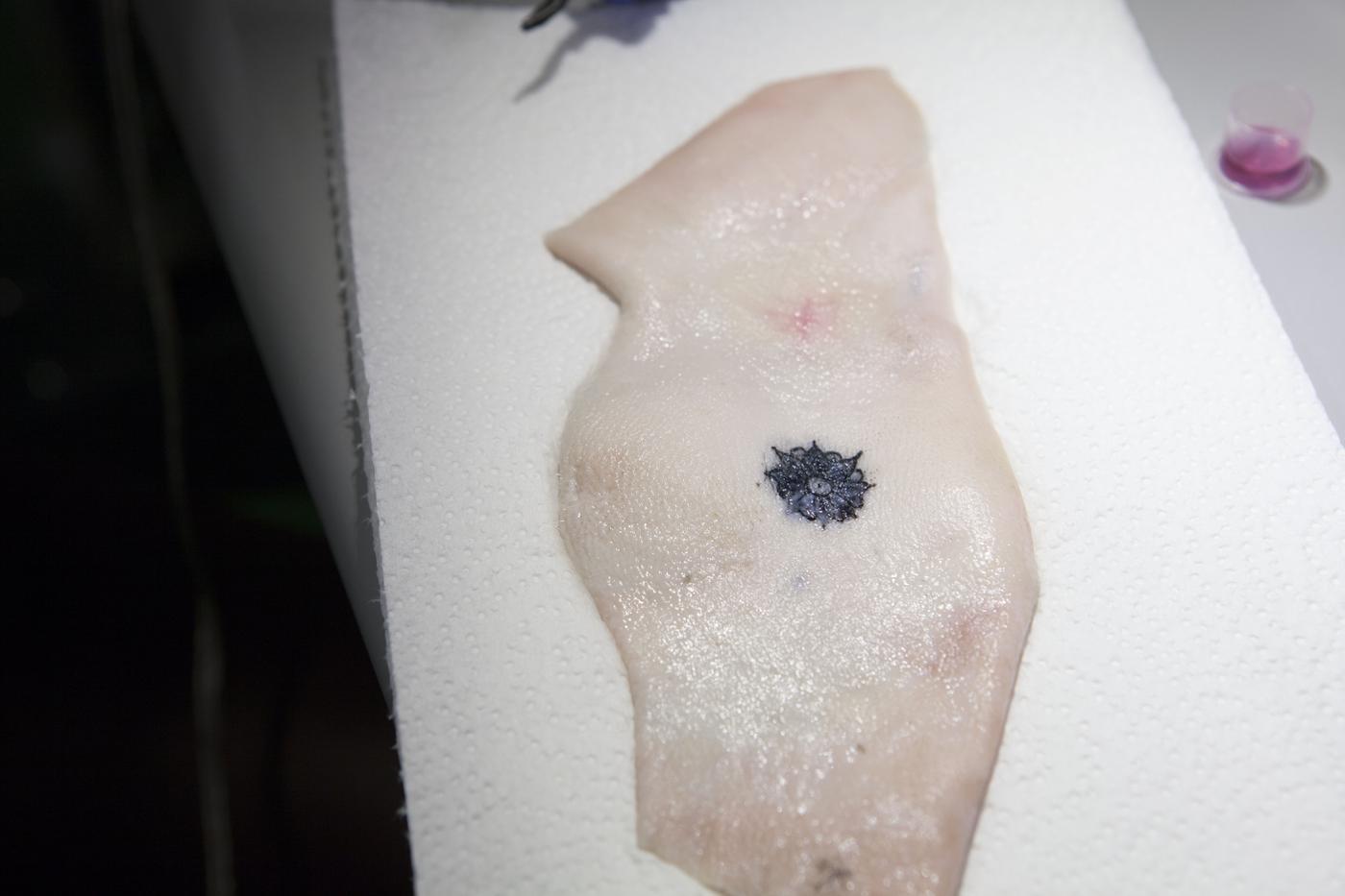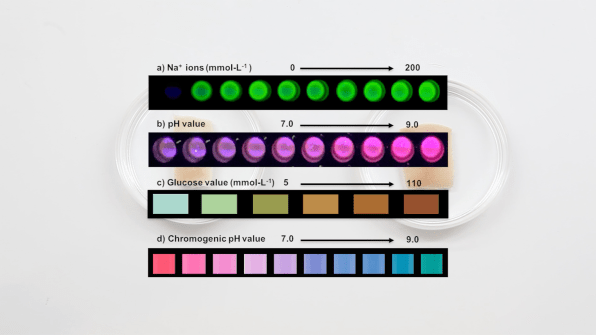
Tattoo for diabetics could change colors along with blood sugar levels
By Mark PygasSep. 26 2019, Updated 8:35 a.m. ET
Tattoos could soon be more than just decorative. MIT Media Lab researcher Katia Vega wants tattoos to be able to convey real-time data about your body. Her project, DermalAbyss, is all about using tattoos inked with biosensors instead of traditional ink.
In collaboration with Harvard Medical School, Vega has created three different types of ink that can measure the shifts of interstitial fluid in your skin. In simpler terms, a tattoo that used these inks could change color based on a person's levels of glucose, sodium, or pH.

According to Veta, who wrote about her project MIT along with colleague Viirj Kan: "The pH sensor changes between purple and pink, the glucose sensor shifts between blue and brown; the sodium and a second pH sensor fluoresce at a higher intensity under UV light."

Veta hopes that the technology could be used in medical purposes in the future. Veta goes on to explain how the ink could benefit those suffering from diabetes by replacing more intrusive testing methods:
"Currently, during daily activities and alimentary habits, diabetics need to monitor their glucose levels by piercing the skin, 3 to 10 times per day. With Dermal Abyss, we imagine the future where the painful procedure is replaced with a tattoo, of which the color from pink to purple based on the glucose levels. Thus, the user could monitor the color changes and the need of insulin."

Fast Company notes several other uses for the ink:
"A sodium biosensor tattoo that glows under UV light could be used to inform the wearer of the amount of water in their body, which could be particularly useful for dehydration and overhydration. pH levels might indicate general health, which might be of interest to people who enjoy tracking their biodata."
Vega notes that the technology could still be a way off. The ink has only been tested on pig skin and "there are currently no plans to develop Dermal Abyss as a product or to pursue clinical trials."
